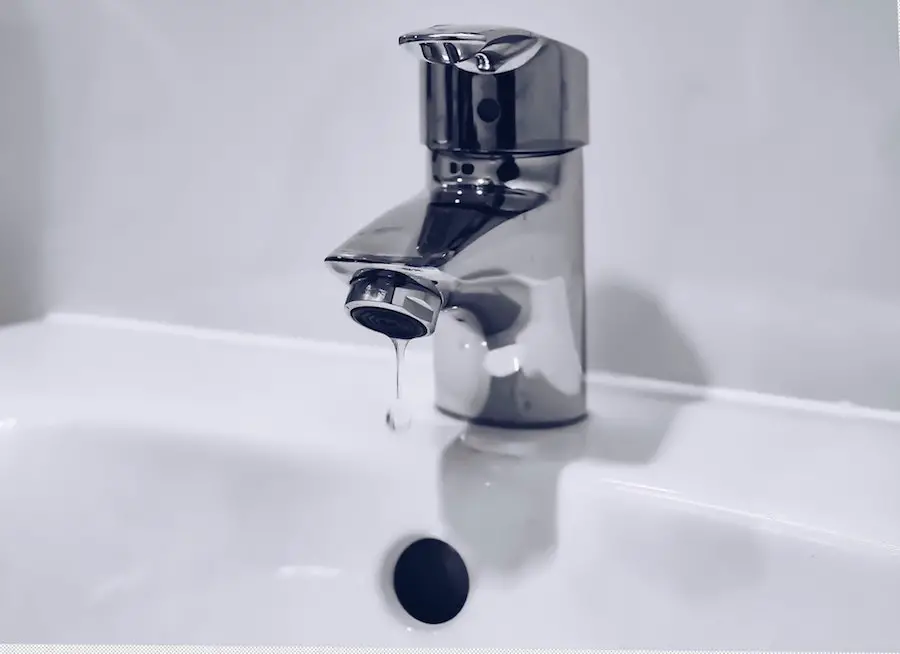Millions of people in the US get their water supply from a private well. Albeit the cheaper option, private wells can cause a homeowner a ton of grief. Just like other structures and mechanisms on your property, a well owner is responsible for the upkeep and maintenance of their well. That said, what happens when you begin noticing your well is beginning to run dry? Will your homeowner’s insurance cover your well going dry?
If your well dries up on its own, or if it is damaged due to something that is expressly excluded, you may need to cover the expense of fixing this issue out of your own pocket. Wells can be very expensive to repair, remove, or replace. So, if you have a well, it’s a good idea to go over the details of your policy to keep yourself from having to pay thousands.

Technically, your well can be covered if it was damaged due to a covered risk on your policy. A typical homeowners policy will either name certain perils it covers or will state all the exclusions. If you can prove that your went dry or got damaged by one of the covered perils, the damage may be covered.
When your very expensive-to-replace well runs dry, the first instinct is to call up your homeowners insurance company to see if they will cover the expense. Unfortunately, there are a lot of factors that go into whether or not homeowners insurance will cover a dry well. First, you want to make sure the well is actually dry. Let’s look at the circumstances when your dry well will (or won’t) be covered by your home insurance.
What is covered when my well fails?
If your well is going dry because of a covered peril, your insurance will replace or repair your water supply. For example, if lightning strikes your well and a piece of it collapses, your insurance will pay for the damage. The same goes for a well gone dry because of:
- Fire
- Explosion
- Windstorm
- Falling objects
- Weight of ice, snow, or sleet
- Freezing
- Volcanic Eruption
- Or other covered perils under your policy
The amount your insurance will pay is subject to your policy limits and the structure of your well. If your well is attached to your home, it will be covered under your dwelling coverage up to the limits of your policy. If it’s detached from your house, it will only be covered by your “other structures” guidelines.
Other structures are only covered for a percentage of your overall dwelling coverage. This means if your policy tops out at $200,000, your detached well may only be covered up to $20,000, or 10% of your dwelling coverage.
The average cost of drilling and installing a new water well and the well pump is upwards of $20,000 according to HomeGuide. This is why your coverage limits and details matter greatly.
When your dry well isn’t covered
A well that has run dry typically needs to be replaced, especially if it relies on a natural spring. Once the water source that the well was pulling from has dried up, you’ll need to move the well to a different location or fill the ground with your own water supply. Unfortunately, both options are very costly to the average person. It can also be quite time consuming and result in lots of time without water. Given the expense and hassle, shouldn’t homeowners insurance foot the bill?
As a homeowner, you’re responsible for protecting your well and maintaining its water supply. If your well dries up on its own, your insurance company will view this as a maintenance issue. Just like any other part of your property, general wear and tear and lack of maintenance are not covered by your policy.
The problem with getting coverage when your well dries up is that the most common reasons for a dry well are natural causes. For instance, if you get your well water from a natural spring and the spring dries up, your insurance will not cover it. This is seen as a responsibility of the homeowner to replace the dry well with the new one.
Another natural cause that won’t be covered is earthquakes. Earth movement is always excluded from a typical insurance policy.
So, if your well dried up because of the ground moving and destroying connections to your water supply, you’ll have to pay for the damage. Other excluded perils include floods, acts of war, or a sewer backup.

Possible endorsements or add-ons
Most insurance companies will offer endorsements that will include coverage for uncovered perils at an extra cost. With a little bonus protection, you may be able to save yourself from the costs involved with your well going dry.
Equipment Breakdown Coverage
If your well goes dry due to a pump failure, equipment breakdown coverage might be able to help. This extra endorsement takes care of damage to your property caused by mechanical, electrical, or system failure.
This add-on includes damage caused to your well pump, say, by an electric surge. Think of this endorsement like a home warranty that is conveniently attached to your policy for an extra fee.
Earth Movement Coverage
If you have a well in an area prone to earthquakes, this additional coverage may be necessary. Earth movement coverage will protect your home and other structures from the detrimental damage caused by the ground moving. This includes events like:
- Earthquakes
- Landslides
- Sinkholes
- Other violent ground shaking
Remember that this endorsement does not include coverage due to floods. Flood insurance is another entity that you might need, though it may be unlikely in the case of a dry well.
Well Water Warranty
This type of warranty is much like a home warranty that is focused on your well. It’s a standalone policy that you can pay for to insure your well and pay for equipment, repairs, and even water treatment.
This warranty works regardless of what caused your well to dry up.

Signs You May Have a Dry Well
If you suspect that your well is running dry or may be influenced by drought conditions, you’re going to want to look for the following signs:
- Murky or muddy tap water
- Drinking water that no longer tastes the same
- Spigots sputter as air comes through
If you notice any of these things transpiring, you will want to probe your well water depth. In order to check the depth, expel the cap and drop an ice cube down into the hole. With a stopwatch going, compute the time it takes until you hear the splash of the ice cube in the water below. Simply estimate the depth with this formula: 16X (time in secs) X (time measured in secs)= the depth of water. If your depth of water is not what it should be, your well may be running dry. Odds are, that’s not the answer you want.
Frequently asked questions
Does homeowners insurance cover a dry well?
Sadly, no. For the most part, if your natural well has run dry and you’ve lost your source of water, the well will not be covered by your homeowners insurance. The only way insurance will cover a dry well is if the well ran dry due to an issue that is covered under your insurance policy. For example, if your natural spring was somehow damaged by a named peril such as a fire, causing your water source to run out, you will be able to file a claim asking for help in replacing your water source. Keep in mind, some natural disasters or issues do not fall under the category of a “named peril.” The main thing to remember is that if your well ran dry on its own, you’ll be hung out to dry in terms of coverage.
Conclusion
When your water supply suddenly goes dry, it can be a good reason to panic. Your homeowner’s insurance will always be the first place you look for a little help or compensation in the matter.
Your insurance company will be there to help you pay for the cost of a dry well as long as it’s not caused by neglect or another uncovered risk. For extra protection, you can always opt for additional coverages and warranties.
To play it safe, always speak with your agent first to make sure your well running dry is not protected. Since replacing or repairing a well can be a major expense and overhaul, you’ll want to explore every possible option when it comes to homeowners insurance. Some policies might be willing to help you out, but as far as the standard goes, most won’t be itching to fulfill your claim. It is also important to get familiar with the “named perils” listed on your homeowner’ policy, as this could help you fight for your cause.
As always, pay attention to your property and always maintain your water supply. The moment you start to notice something isn’t right, it’s time to act!
Also Read: Does Homeowners Insurance Cover Well Pumps?

